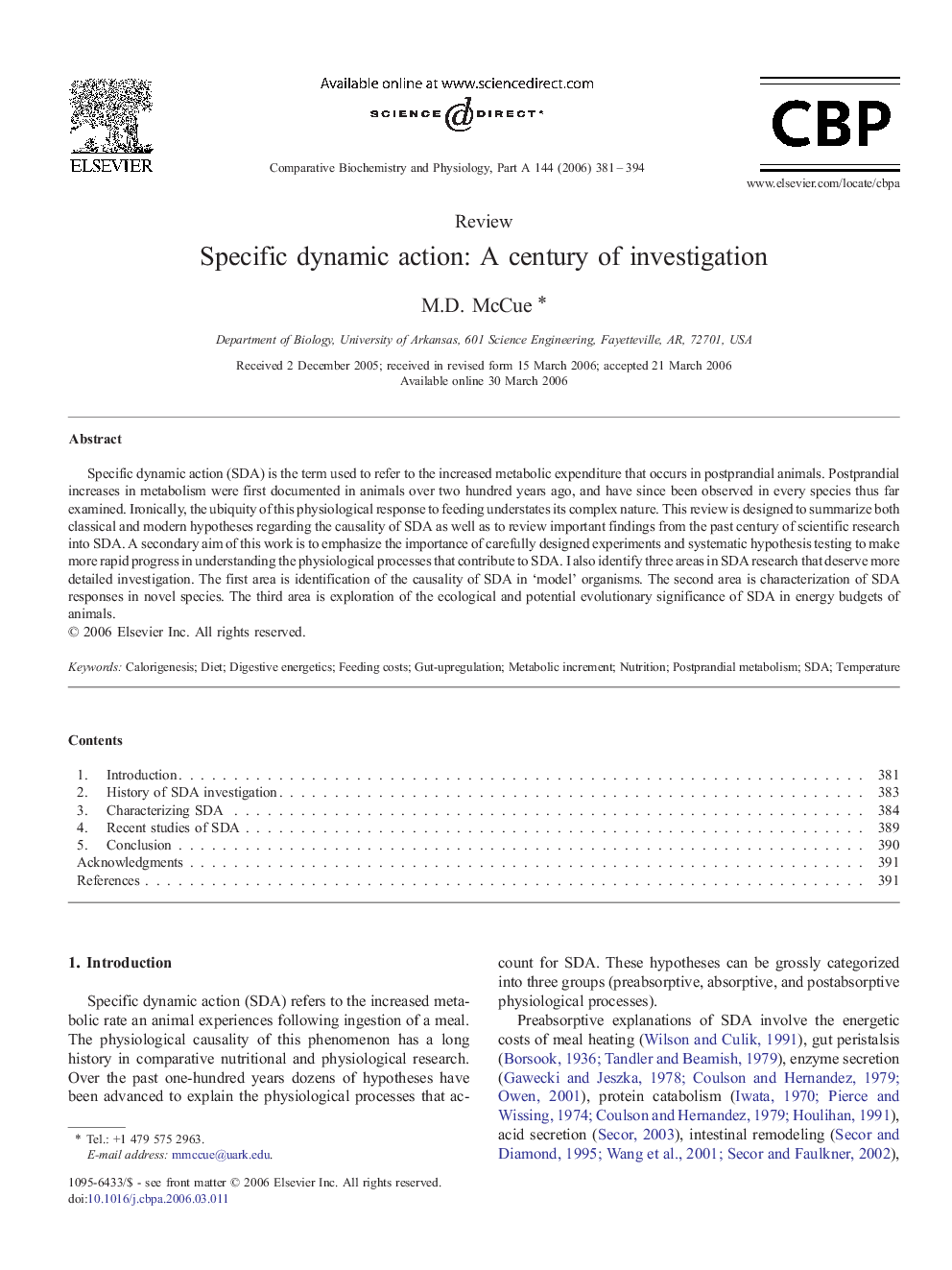| Article ID | Journal | Published Year | Pages | File Type |
|---|---|---|---|---|
| 1973610 | Comparative Biochemistry and Physiology Part A: Molecular & Integrative Physiology | 2006 | 14 Pages |
Specific dynamic action (SDA) is the term used to refer to the increased metabolic expenditure that occurs in postprandial animals. Postprandial increases in metabolism were first documented in animals over two hundred years ago, and have since been observed in every species thus far examined. Ironically, the ubiquity of this physiological response to feeding understates its complex nature. This review is designed to summarize both classical and modern hypotheses regarding the causality of SDA as well as to review important findings from the past century of scientific research into SDA. A secondary aim of this work is to emphasize the importance of carefully designed experiments and systematic hypothesis testing to make more rapid progress in understanding the physiological processes that contribute to SDA. I also identify three areas in SDA research that deserve more detailed investigation. The first area is identification of the causality of SDA in ‘model’ organisms. The second area is characterization of SDA responses in novel species. The third area is exploration of the ecological and potential evolutionary significance of SDA in energy budgets of animals.
